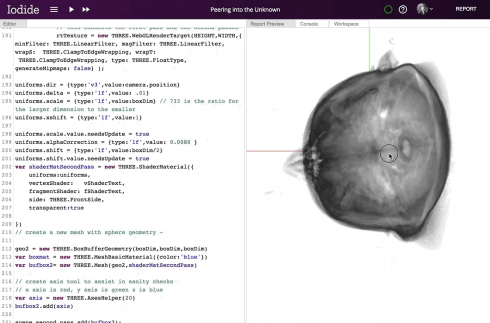
Mozilla is releasing an experimental scientist communication and exploration tool for the web. Iodide enables data scientists to create, share, collaborate and reproduce reports and visualizations on the web with familiar tools.
According to the company, while the data and scientific computing world is exploding, there has been little work done to give scientists access to their work in modern web browsers.
“To address these needs, we’ve seen a renaissance in programming languages, tools, and techniques that help scientists and researchers explore and understand data and scientific concepts, and to communicate their findings. But to date, very few tools have focused on helping scientists gain unfiltered access to the full communication potential of modern web browser,” Brendan Colloran, Mozilla data scientist, wrote in a post.
According to Colloran, in addition to being a programming environment, the solution is designed to remove friction between communicative workflows with a clean readable document. “This diverges from IDE-style environments that output presentational documents like .pdf files (which are then divorced from the original code) and cell-based notebooks which mix code and presentation elements. In Iodide, you can get both a document that looks however you want it to look, and easy access to the underlying code and editing environment,” Colloran wrote.
Iodide is still in its alpha state and is expected to improve as the team receives feedback from the community.
The tool’s roadmap includes enhanced collaborative features, more support for languages, export notebook archive, and an Iodide to text editor browser extension.
“We’re not trying to solve all the problems of data science and scientific computing, and we know that Iodide will not be everyone’s cup of tea,” wrote Colloran. “But for those scientists who do produce content for the web, and for those who might like to do so if you had tools designed to support the way you work: we’d really love to hear from you!”






